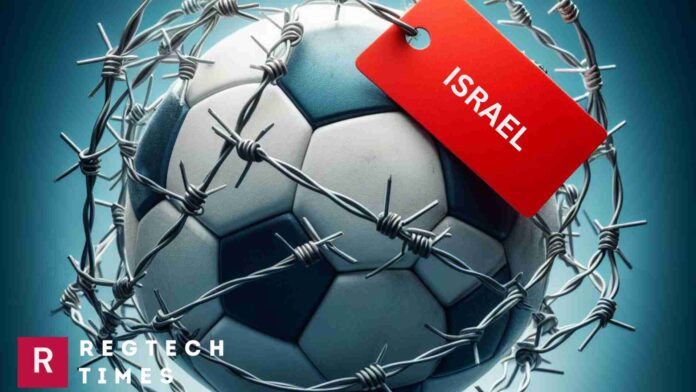In the arena where passion meets politics, the world of soccer is no stranger to controversy. The upcoming FIFA congress is poised to become the battleground for a contentious issue: Palestinian call for sanctions against Israeli soccer teams. This proposal, driven by the Palestinian Football Association (PFA), seeks to address what it deems as violations of international law and human rights commitments by Israeli teams. As the global football community braces for deliberations in Thailand, tensions run high, mirroring the longstanding conflict between Israel and Palestine.
Palestinian Call For Sanctions
The catalyst for the Palestinian call for sanctions stems from the devastating conflict between Israel and the militant group Hamas. The war, ignited by Hamas’ terror assault in southern Israel, has resulted in widespread casualties and destruction, particularly in Gaza. The Palestinian territories have borne the brunt of the violence, with infrastructure, including the historic Al-Yarmuk stadium, being decimated. Amidst the chaos, the PFA is rallying support from fellow member federations, including Algeria, Iraq, Jordan, Syria, and Yemen, in a bid to bring the issue to FIFA’s forefront.
The Proposal
The crux of the PFA’s proposal lies in advocating for immediate sanctions against Israeli soccer teams, citing egregious violations of international law and FIFA’s own commitments to human rights and non-discrimination. The motion underscores the dire situation in Gaza, where the footballing infrastructure has been obliterated, leaving a trail of devastation in its wake. With mounting casualties and a humanitarian crisis unfolding, the PFA asserts that the time for action is now.
Challenges and Controversies
However, the road to sanctions is fraught with challenges. Despite the PFA’s impassioned plea, FIFA’s support for punitive measures against Israeli soccer remains uncertain. Israel, backed by global allies, including UEFA and recent cooperation with CONMEBOL, is likely to receive staunch support, complicating the prospects of any meaningful sanctions. The comparison drawn with Russia’s exclusion from international competitions during the Ukraine invasion serves as a cautionary tale, highlighting the complexities of navigating geopolitical tensions within the realm of sports.
The Impact and Implications
The ramifications of this dispute extend far beyond the confines of the football pitch. The PFA’s assertion that some football associations may refuse to play against Israel underscores the potential ripple effects of FIFA’s decision.
The specter of past controversies, such as Indonesia’s loss of hosting rights for the men’s Under-20 World Cup, looms large, underscoring the high stakes involved. As the Palestinian-Israeli soccer saga continues to unfold, FIFA finds itself at a crossroads, tasked with balancing sporting integrity with geopolitical sensitivities.
Previously Iran made the same demands for the ban on Israel Soccer teams in FIFA. The demand from Palestine is increasing the pressure on FIFA to act against Israel.
Conclusion
As delegates gather in Bangkok for the FIFA congress, the eyes of the world are upon them. The Palestinian call for sanctions against Israeli soccer teams underscores the intersection of sports and politics, highlighting the power dynamics at play within the beautiful game.
Whether FIFA chooses to heed the plea for justice or navigate a delicate diplomatic dance remains to be seen. Yet, one thing is clear: the outcome of this debate will reverberate far beyond the realm of soccer, leaving an indelible mark on the landscape of international relations.


